Azerbaijan and Slovenia outline their priorities Green energy, gas, and the IT sector
In recent years, Azerbaijan has been actively expanding its economic ties with the countries of Southern and Eastern Europe within the framework of the Southern Gas Corridor (SGC) project. At the same time, partnerships with regional states are being strengthened through promising initiatives in the field of alternative energy.
Azerbaijan and Slovenia, both seeking to boost trade relations and attract investment into the non-oil sector, have been steadily deepening cooperation in gas supply and the implementation of “green” transition goals since July of last year. These key areas for the development of bilateral business cooperation were discussed during Azerbaijani Energy Minister Parviz Shahbazov’s recent working visit to Slovenia.
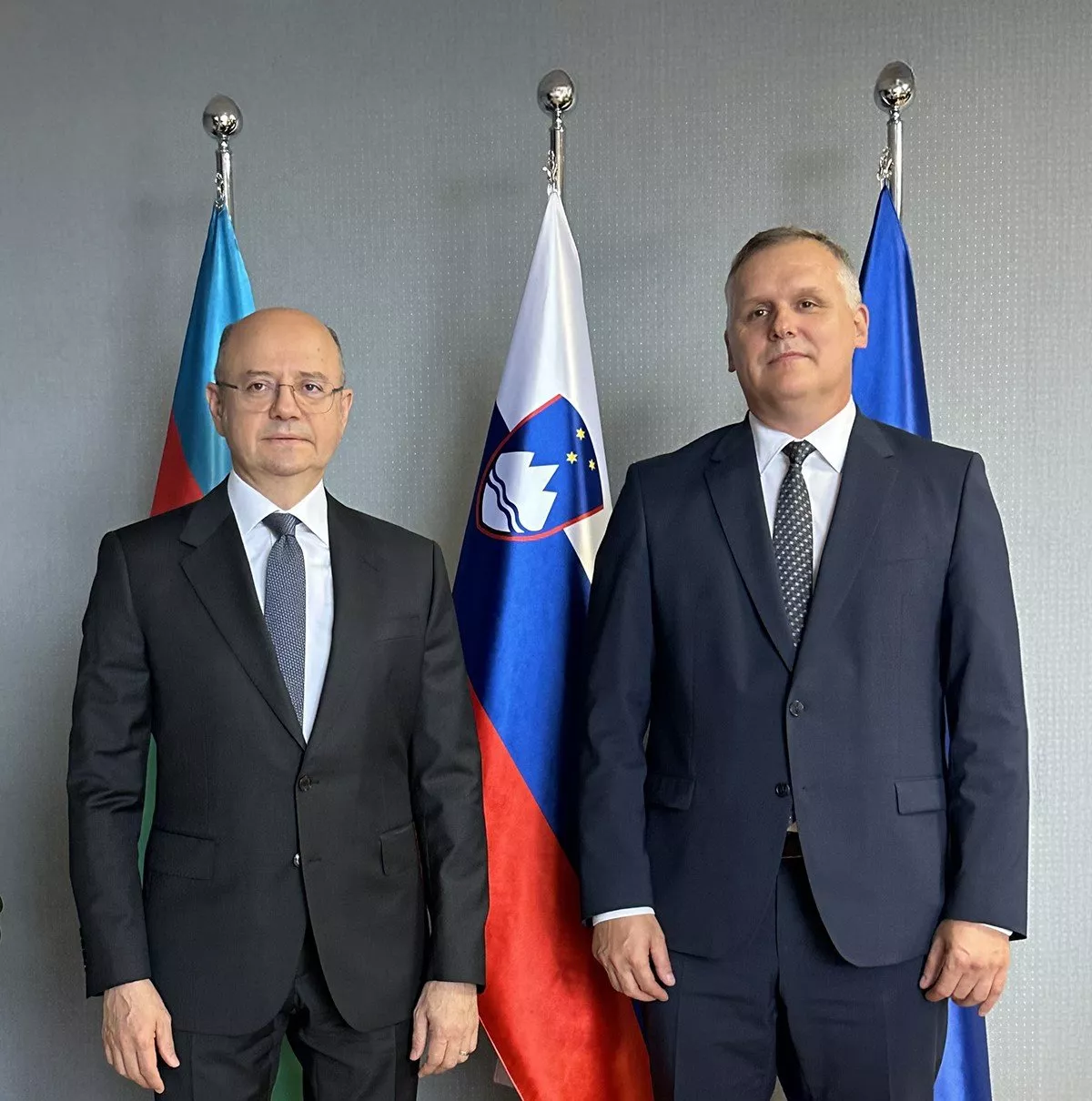
In February next year, Azerbaijan and Slovenia will mark the 30th anniversary of the establishment of diplomatic relations. Over the past decades, cooperation between the two countries has been built on a solid foundation of mutual respect and shared approaches to key global and regional political issues.
Baku and Ljubljana have strengthened their partnership within the framework of EU-initiated projects and cooperated in other international organisations. To date, more than 12 intergovernmental and interstate agreements have been signed between the two countries. Notably, a bilateral convention on the avoidance of double taxation on income and property was concluded in 2011, along with several other agreements aimed at boosting trade relations.
To further expand business ties, cooperation has been established between the Azerbaijan Export and Investment Promotion Agency (AZPROMO) and Slovenia’s Public Agency for Entrepreneurship, Internationalisation, Foreign Investments and Technology (SPIRIT Slovenia).
Slovenia’s imports are primarily composed of pharmaceutical products—alongside Germany and Hungary, this Balkan country ranks among the top three EU suppliers of pharmaceutical goods to Azerbaijan. The structure of Slovenian imports also includes motor vehicles and spare parts, ferrous metallurgy products, industrial equipment, and, to a lesser extent, food and consumer goods.
In turn, Azerbaijan mainly exports urea-based fertilisers, petroleum products, polymers, methanol, tar oils, aluminium foil, and, in smaller quantities, agricultural and food industry products.
Last year, the trade turnover between Azerbaijan and Slovenia amounted to $30 million—a modest figure, especially considering the untapped potential of both economies.
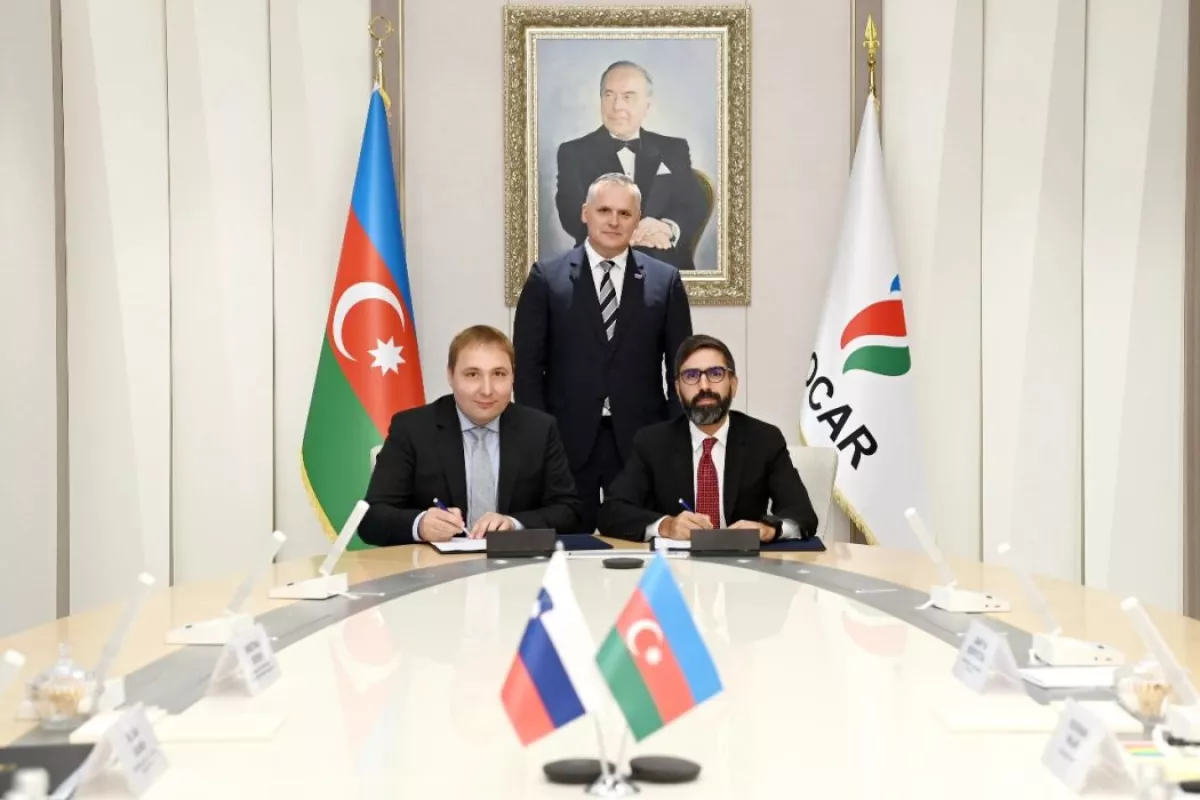
However, this inertia has begun to be overcome following the signing of a Memorandum of Understanding on July 17 last year between the State Oil Company of Azerbaijan (SOCAR) and Slovenia’s largest natural gas supplier, Geoplin. The agreement on expanding cooperation in the field of gas supply effectively added Slovenia to the list of recipients of Azerbaijani gas, significantly reshaping the outlook for bilateral trade relations.
In the initial phase, the volume of supplies delivered via Italy’s gas transmission network was estimated at 0.3 billion cubic metres per year. This figure is expected to rise substantially in the future, particularly after the launch of the planned Ionian-Adriatic Pipeline (IAP).
This trend continued on April 4, 2025, with the signing of additional memoranda of understanding between the two countries during the 11th Ministerial Meeting of the Southern Gas Corridor Advisory Council and the 3rd Ministerial Meeting of the Green Energy Advisory Council. These documents support the further development of bilateral cooperation in the fields of natural gas and renewable energy.
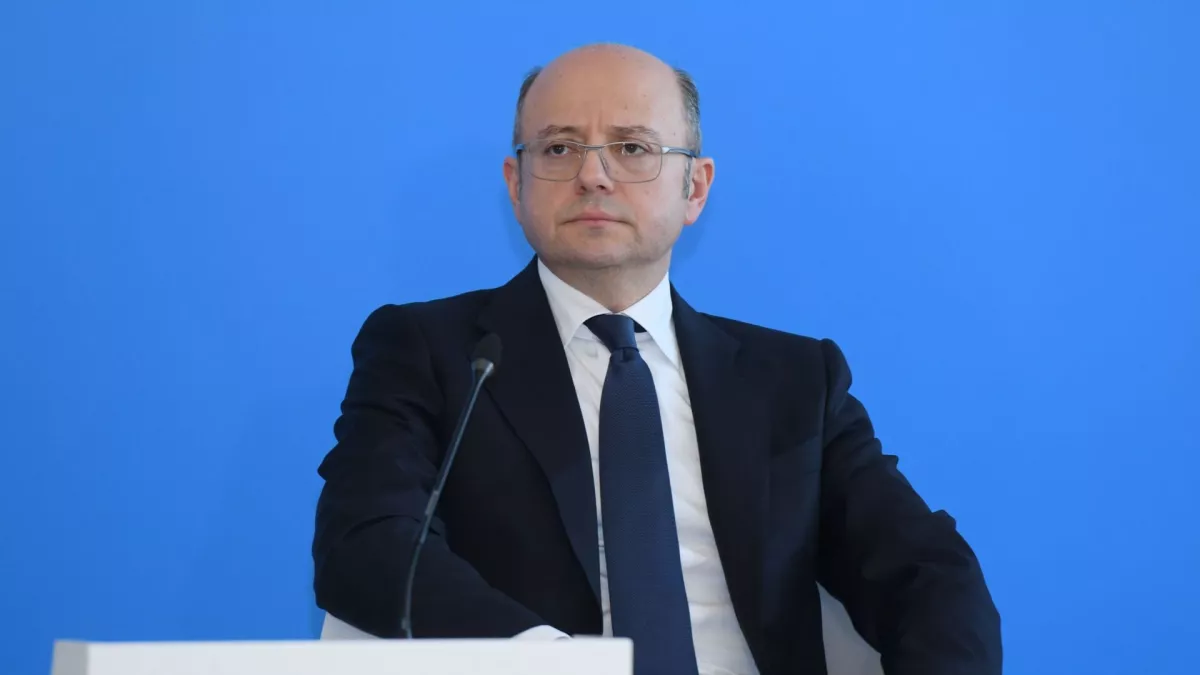
“We also discussed prospects for increasing the supply of Azerbaijani gas which accounted for approximately 5% of Slovenia's total gas consumption last year and cooperation in the field of green energy supply,” Azerbaijani Energy Minister Parviz Shahbazov wrote on his social media page X.
According to the head of Azerbaijan’s Ministry of Energy, the working visit took place at the invitation of Slovenia’s Minister of Environment, Climate and Energy, Bojan Kumer. During the talks, issues concerning bilateral energy relations were discussed, along with assessments of new opportunities for cooperation within the framework of developing a strategic energy partnership between Azerbaijan and the European Union aimed at strengthening energy security.
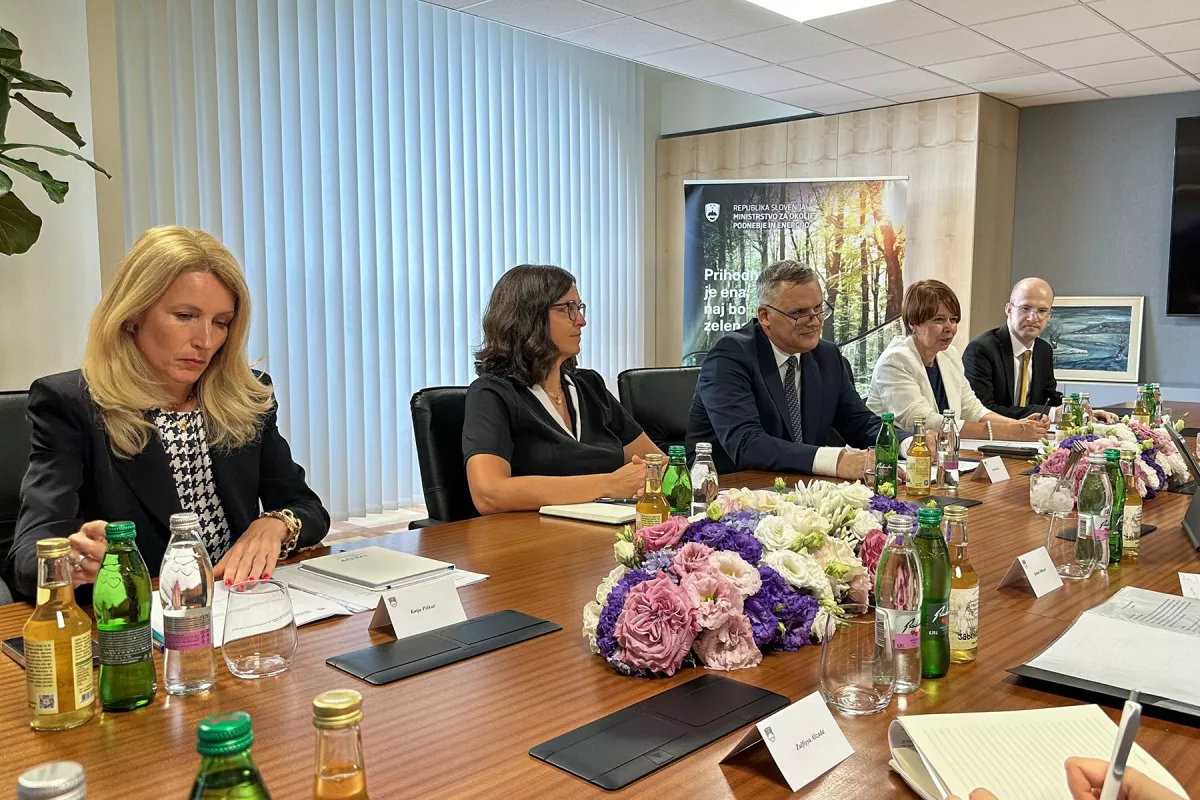
“Slovenia considers Azerbaijan one of its key partners in diversifying energy sources, strengthening energy security, and achieving the goals of the green transition,” said Minister Bojan Kumer. “We focused on issues crucial to our shared future—reliable natural gas supply, long-term cooperation, and, above all, the development of renewable energy projects.”
Commenting on SOCAR’s deliveries of Azerbaijani gas to Slovenia, which began on August 1 last year, Minister Kumer noted that they have successfully diversified natural gas supply routes: “Thanks to this, we literally saved Slovenia and securely supplied it with natural gas for the upcoming winter.”
The Slovenian minister also recalled the agreement to expand cooperation opportunities between companies from both countries in other areas. Alongside renewable energy sources (solar, wind, and small hydropower), highlighted priorities include the hydrogen strategy as well as collaboration in artificial intelligence (AI), the IT sector, and more.
Notably, the two countries have long and successfully cooperated in telecommunications and cybersecurity. Specifically, the Slovenian company Iskratel Ltd. participated over fifteen years ago as an equipment supplier and system integrator in projects by Azerbaijan’s Ministry of Communications (now the Ministry of Digital Development and Transport) for digitalising communication systems in Greater Baku and Sumgait, and for upgrading Aztelecom’s telephone exchanges to Next Generation Network (NGN) technology. Later, Iskratel specialists were involved in developing cybersecurity systems for Azerbaijan’s leading cable operator, Delta Telecom.
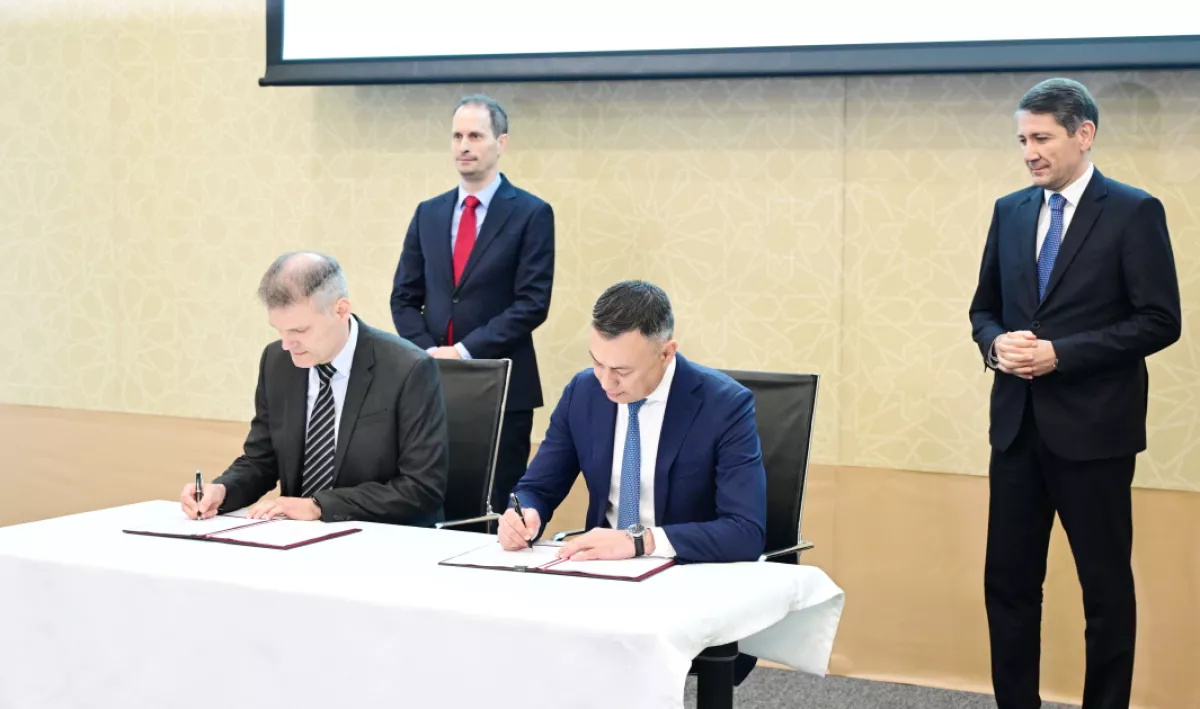
This foundation is planned to be further developed in the coming period. During a visit to Baku in April this year, a Slovenian business delegation discussed prospects for implementing joint projects focused on the automation and digitalisation of production capacities in Azerbaijan.
The most promising sectors for establishing Azerbaijani-Slovenian joint ventures (JVs) were identified as information and communication technologies (ICT), including telecommunications and digital solutions. One example is the cooperation between the Slovenian company Kontron and Azerbaijan’s Bestcomp Group, which is focused on the development of telecommunications solutions.
The creation of joint ventures is also highly promising in the fields of pharmaceutical industry and healthcare, as well as in construction and infrastructure. Slovenian companies, in particular, are keen to participate in contracting projects related to reconstruction efforts in Karabakh and East Zangezur.
Cooperation in the transport sector is also considered a priority, with a focus on leveraging the potential of the Middle Corridor. In this regard, Slovenia—situated in the heart of Europe—offers to utilise its northernmost Adriatic port, Koper, which has significant potential to expand logistics connections with the Black Sea–Caspian region.








